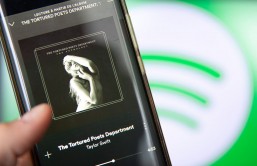A new study suggests that people who rake longer than 14 minutes before they fall asleep are at greater risk of hypertension.
Researchers at West China Hospital involved 219 participants diagnosed with chronic insomnia and 96 people that are normal sleepers with an average age of 40 in a recent study. They all underwent a night of sleep observation and a Multiple Latency Sleep Test (MSLT), a sleep diagnostic tool that measures excessive daytime sleepiness, the following day. They were given four 20-minute naps over two-hour intervals during the day. Fifty percent of them struggled to fall asleep within 14 minutes and were described as "hyper-aroused."
"We observed a strong correlation between the degree of physiological hyper-arousal and hypertension," said Xiangdong Tang M.D., Ph.D, co- author of the study and professor of sleep medicine at West China Hospital, Sichuan University in Chengdu, China, in a news release.
The researchers also measured the blood pressure of the participants and considered other factors such as obesity, sleep apnea, diabetes, smoking, alcohol and caffeine use to rule out other possible increased causes of hypertension.
The analysis showed that people with chronic insomnia who needed more than 14 minutes in the sleep diagnostic tool tripled their risk of hypertension. Those who spent longer than 17 minutes falling asleep increased their risk by a whopping 400 percent.
The study is the first to link hypertension to physiological hyper-arousal (restlessness which makes it harder for people to fall asleep).
The findings of the study may be useful in the development of treatments for hyper-arousal which causes insomniacs to stay awake. The researchers also warned insomniacs to avoid caffeine as it only makes their condition worse.
"Measures that apply in sleep-deprived normal sleepers -- napping, caffeine use or other stimulants to combat fatigue -- do not apply in insomniacs. In fact, excessive caffeine worsens the hyper-arousal," said study co-author Dr. Alexandros Vgontzas, a professor of sleep research and treatment in the department of psychiatry at the Pennsylvania State University College of Medicine in Hershey, Pa.
The study was published in the Jan. 26 issue of the American Heart Association journal Hypertension.








